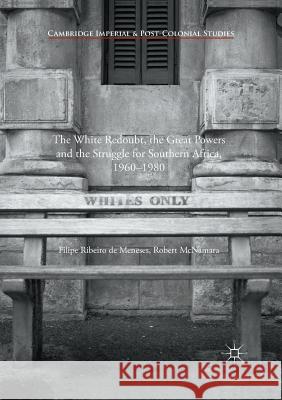The White Redoubt, the Great Powers and the Struggle for Southern Africa, 1960-1980 » książka
topmenu
The White Redoubt, the Great Powers and the Struggle for Southern Africa, 1960-1980
ISBN-13: 9781349686063 / Angielski / Miękka / 2019 / 401 str.
The White Redoubt, the Great Powers and the Struggle for Southern Africa, 1960-1980
ISBN-13: 9781349686063 / Angielski / Miękka / 2019 / 401 str.
cena 462,63 zł
(netto: 440,60 VAT: 5%)
Najniższa cena z 30 dni: 459,42 zł
(netto: 440,60 VAT: 5%)
Najniższa cena z 30 dni: 459,42 zł
Termin realizacji zamówienia:
ok. 20 dni roboczych.
ok. 20 dni roboczych.
Darmowa dostawa!
Kategorie BISAC:
Wydawca:
Palgrave MacMillan
Seria wydawnicza:
Język:
Angielski
ISBN-13:
9781349686063
Rok wydania:
2019
Wydanie:
2018
Numer serii:
000304516
Ilość stron:
401
Waga:
0.50 kg
Wymiary:
21.01 x 14.81 x 2.21
Oprawa:
Miękka
Wolumenów:
01
Dodatkowe informacje:
Wydanie ilustrowane











